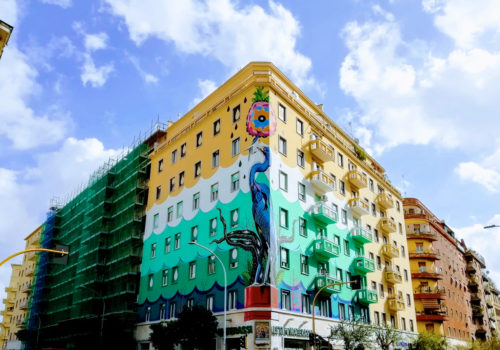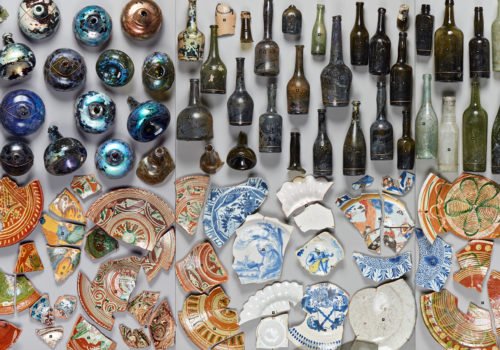Italy begins Phase 2. Italians abroad report on post-lockdown around the world
The world comes to terms with the pandemic that has overwhelmed entire countries and dealt a crushing blow to cities. Pantografo Magazine was conceived to investigate and report what is happening “inside the cities” and on this occasion has chosen to interview Italians living abroad to learn what is happening in places with good news such as New Zealand, or in countries such as Japan and Korea, predisposed by their cultures to observe the new social distancing measures.
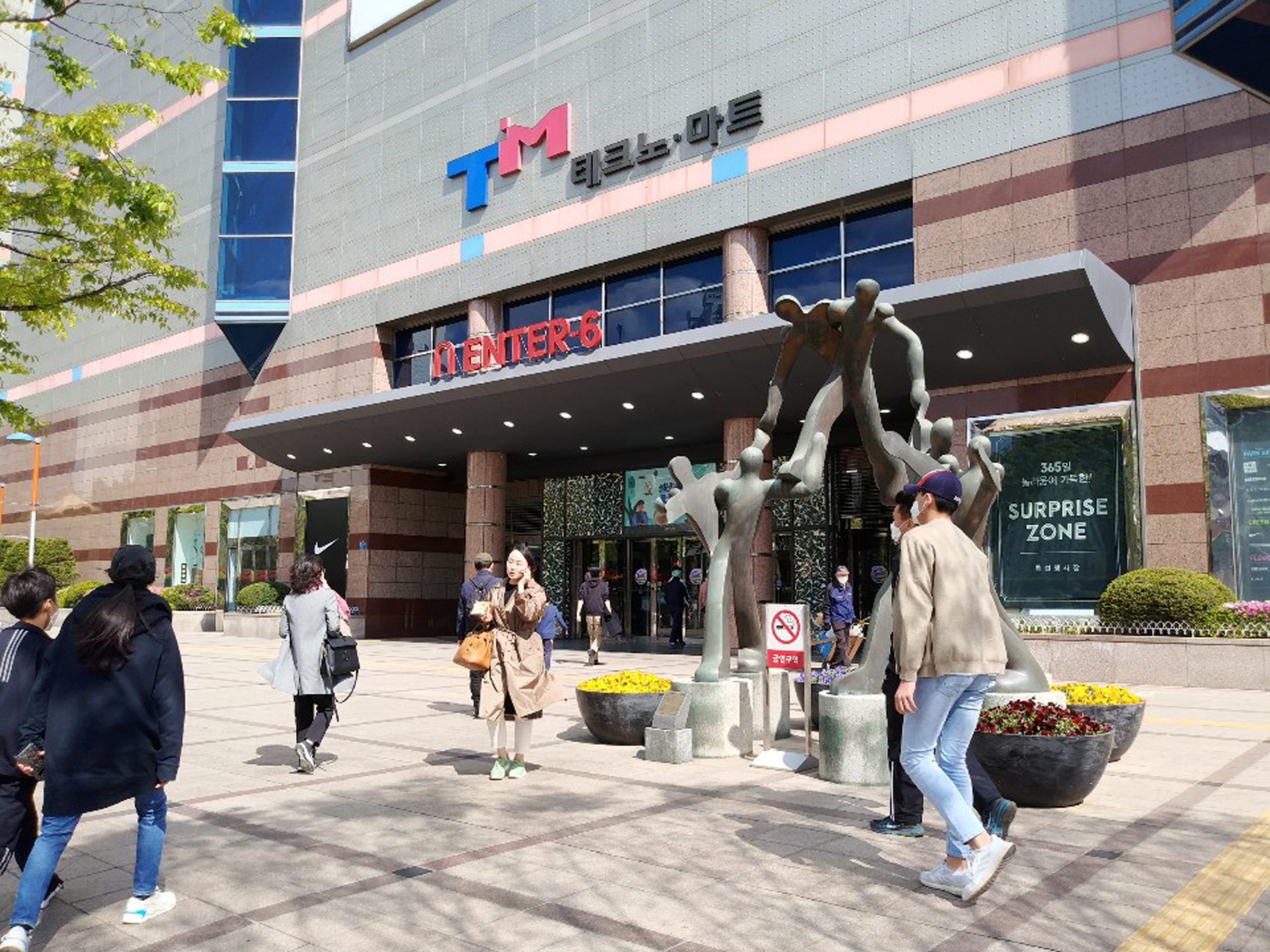
Seoul. Foto: Eric Yong Joong Lee
While Milan has distinguished itself for its plan to reinforce its bicycle paths, the Guardian these days has reported on the strategy enacted in the city of Vilnius, announced by its mayor: to concede many public spaces owned by the City to restaurants and bars, free of charge for the entire season, to make Vilnius one single, extensive «open-air café». With this one solution, they have satisfied both the merchants and the local community, while offering support to tourism as well.
So let’s take this journey around the world looking out the windows of our homes. While in Italy Nature makes the difference by taking over its spaces again, the silence and emptiness of public spaces echoes around the world. What will happen in Phase 2 remains an enigma.
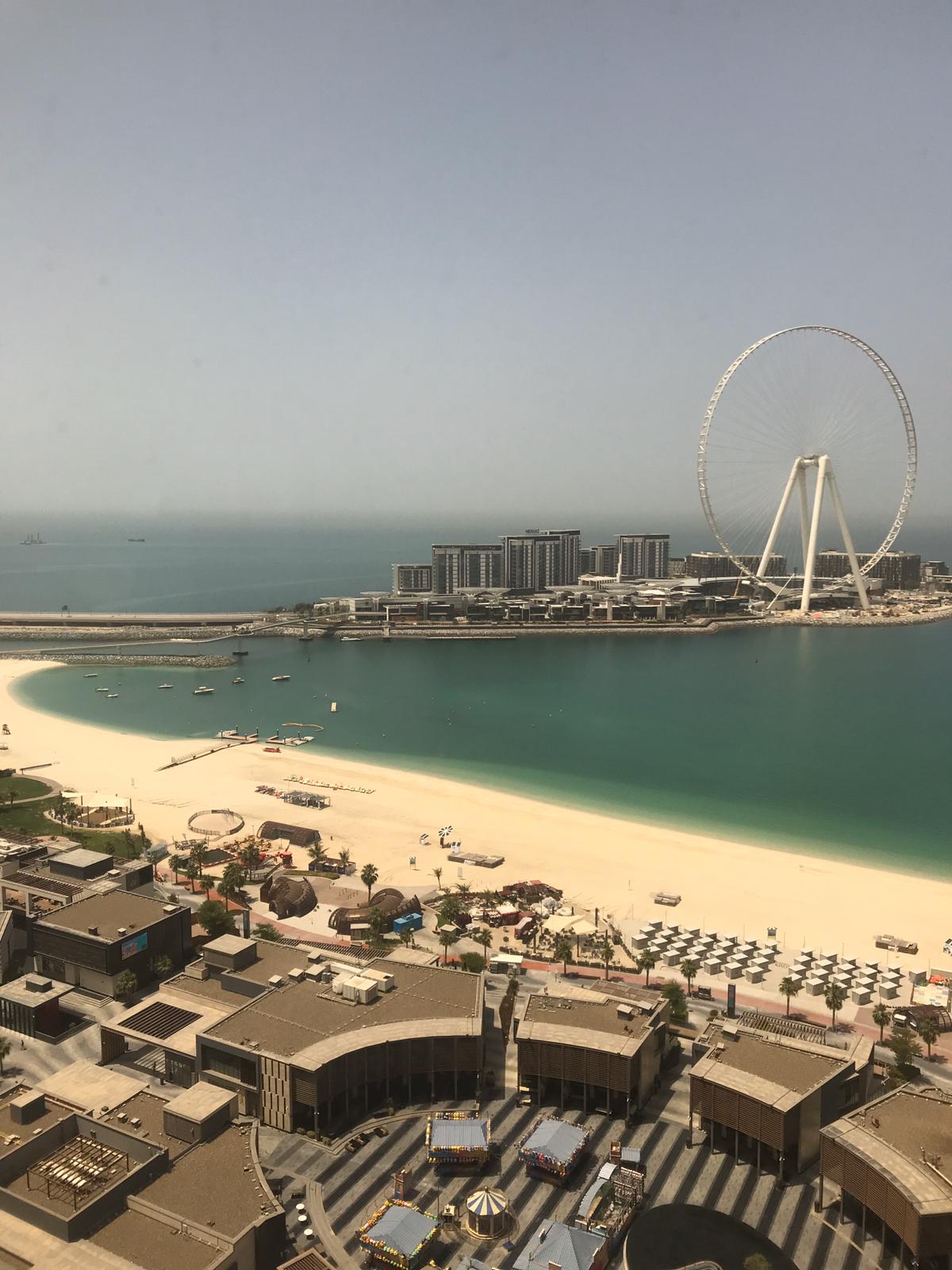
Dubai. Foto: Francesca Vittori
Dubai. Let’s dispel the myth that «Covid-19 is going to disappear in the summer because it can’t resist the heat. In the Emirates the temperature runs from 30 to 37 degrees Celsius yet the Coronavirus has come here too, and within the space of two months has led to over 11,000 cases of infection». Francesca Vittori, Destination Space Director of Design Group Italia has spent her quarantine in Dubai where she had gone on a work-related mission. «During the months of February and March, passengers arriving in the UAE from red zones such as China, Italy and South Korea had their temperatures measured on the spot and were tested, then self-isolated until they proven to be negative to the test. The beaches reamined open as did the restaurants and hotels, but from one day to the next, hand sanitizers appeared on every corner, along with the first face masks. On March 21st, a nighttime lockdown from 6 pm to 8 am was announced – explained Francesca – with the purpose of sanitizing the streets, and people were told to go out only in case of real need. Many began smart-working from home, the hotels shuttered their spas, gyms and swimming pools one after the other, and eliminated the buffet. One of the most important airports in the world was shut down and Fly Emirates was grounded until further notice; over 10 self-test centres appeared in Abu Dhabi and the rest of the UAE». On April 4th, Dubai (but not all the Emirates) imposed a 24-hour lockdown: only supermarkets and pharmacies remained open, and everyone was required to register on the police website for a quick and simple procedure that issued a permit to go out within the space of 10 minutes. After April 24th, a controlled reopening process began, maintaining the lockdown from 10 pm to 6 am.
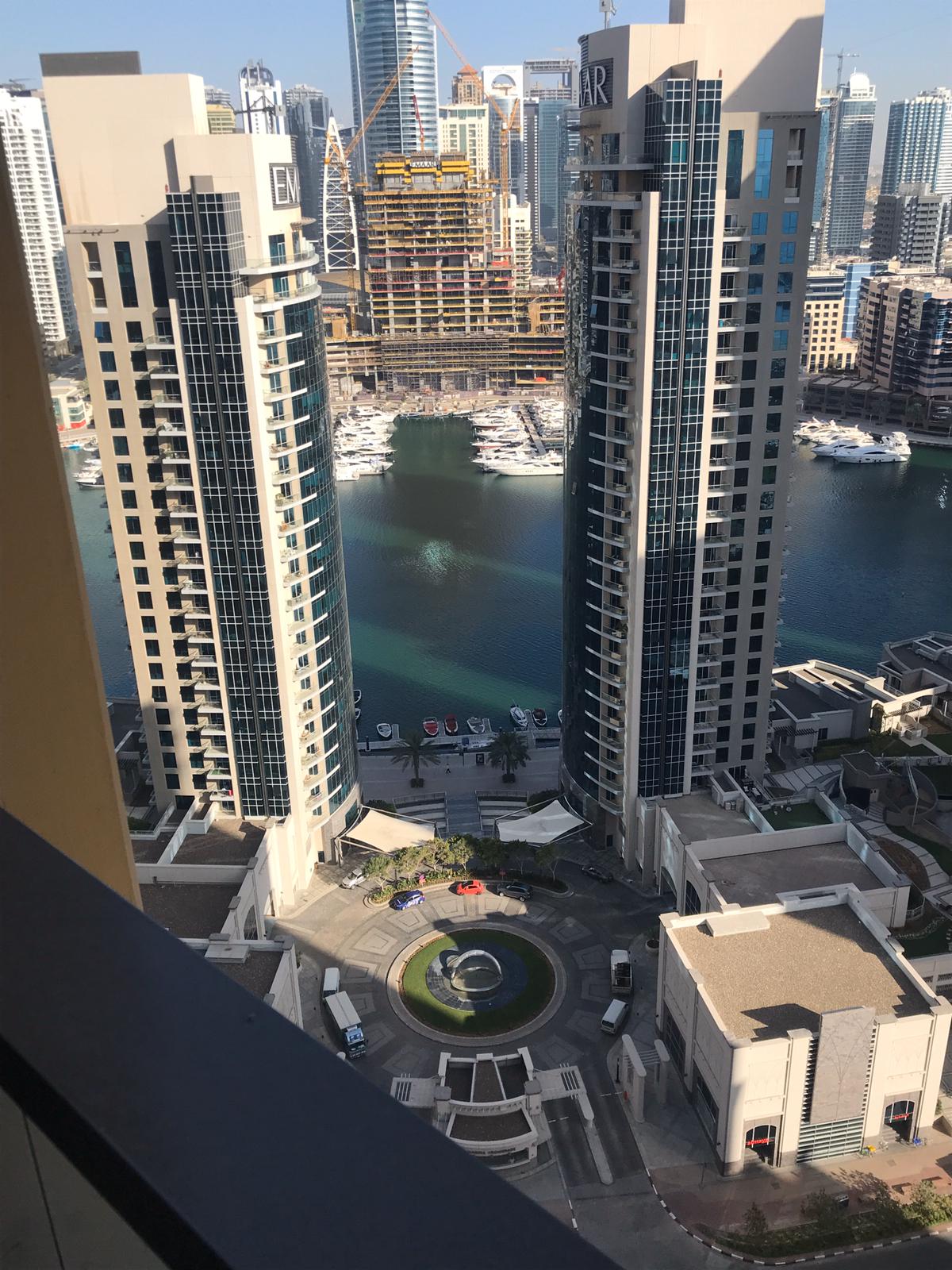
Dubai. Foto: Francesca Vittori
«They even reopened the malls– said Francesca – the hubs for millions of shoppers in this area, following an intense sanitizing procedure, limiting capacity to 30% and imposing a 3-hour time limit, and a temperature test at the entrance. Entertainment venues such as movie theatres, aquariums and children’s play areas will not reopen, and all seating and activation pop-ups were removed. Parking areas closed 75% of their capacity, while retail stores that could guarantee compliance with the guidelines were allowed to open. Finally, restaurants were allowed not only to deliver but to serve meals as well, as long as they guaranteed a distance of six feet between tables. Retail stores opened, if they guaranteed the possibility of social distancing, public transportation reopened after being sanitized and marking the floors to remind people to keep their distance. But not everything is open… the beaches, mosques, amusement parks, tourist attractions and tours are still prohibited, but they are hoping to welcome visitors as early as July, or September at the most. Construction will start up again on Expo Dubai 2021, which has been postponed for a year».
Auckland. New Zealand prime minister Jacinta Arden just recently commented positively that the infection seems to have stopped, but that this is not the time to let our guard down, «we must remain alert if we want the situation to stay as it is». The return to normality is not yet guaranteed, says Maria Giulia Pozzi, an Italian journalist who has lived in Auckland for the past few years. She is married to a New Zealander and has two little girls. «Since the beginning of the crisis, Arden has declared that the strategy to pursue is not containment, but the elimination of Covid-19. For this reason, she instituted a lockdown on March 26th, requiring everyone to stay home, according to the motto “stay home, save lives”.
Schools, businesses, borders were all closed, only essential services remained open. During the Level-4 phase, you could only go out to shop for food, to go to the pharmacy or take a walk and exercise, always maintaining a 2-meter social distance». After 4 weeks of isolation and 18 deaths out of 1470 cases of Coronavirus, the Prime Minister decided that New Zealand was ready to scale down to a Level-3 alert. «Schools opened for children up to the age of 10, while those between the ages of 11 and 13 continued to study at home online; company employees worked from home when possible, travel between the different regions of the Country were authorized only if necessary, stores and restaurants remain closed to the public, but online purchases were possible and restaurants could do take-away. So Auckland is catching a few glimpses of a normality which is still far away».
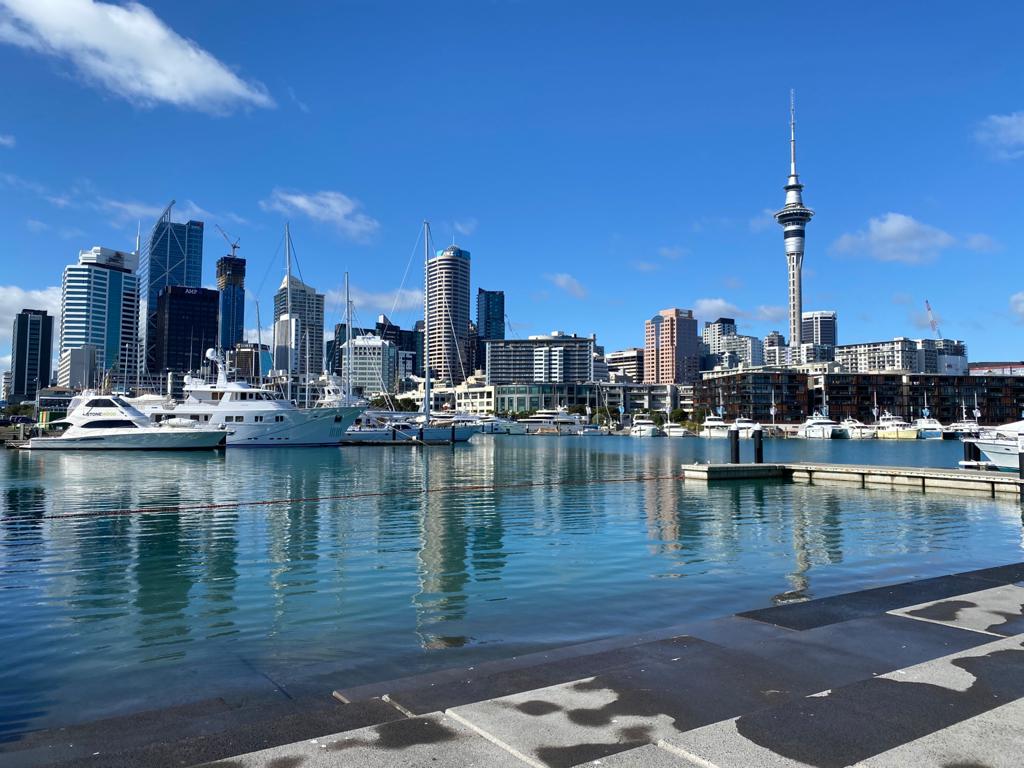
Auckland. Foto: Maria Giulia Pozzi
This country, which is among those farthest from us, sounds yet another alarm: «Imports and exports have experienced considerable losses, because incoming and outgoing flights have been blocked for everything except essential goods. The customers of import/export companies, says Maria Giulia, have slowed their demand, because of the large amount of merchandise still stocked in warehouses. Furthermore, the biweekly schedule of port services for incoming cargo has created significant slowdowns in handling containers.»
The Italian journalist, whose reporting has focused on the theme of food from a particular perspective since she moved there, says that «restaurant owners have not been able to do much until now, but they are creating special ad-hoc menus for the post-Level 4 phase. Take-away will be the trend for the next two weeks for two reasons: first because families are tired of cooking, and second because there is a strong sense of community in New Zealand, and people will try to support the restaurants and bars in their neighbourhoods. The winners in this situation, she explains, have unequivocally been the owners of supermarkets, frozen food companies and businesses such as “My food bag”, which offers packages of fresh foods and simple recipes for the entire family for a week. New ideas such as fine dining for dogs will open take-out service, an experience that they can share with their owners in the comfort of their own home for the moment, until public venues open back up».
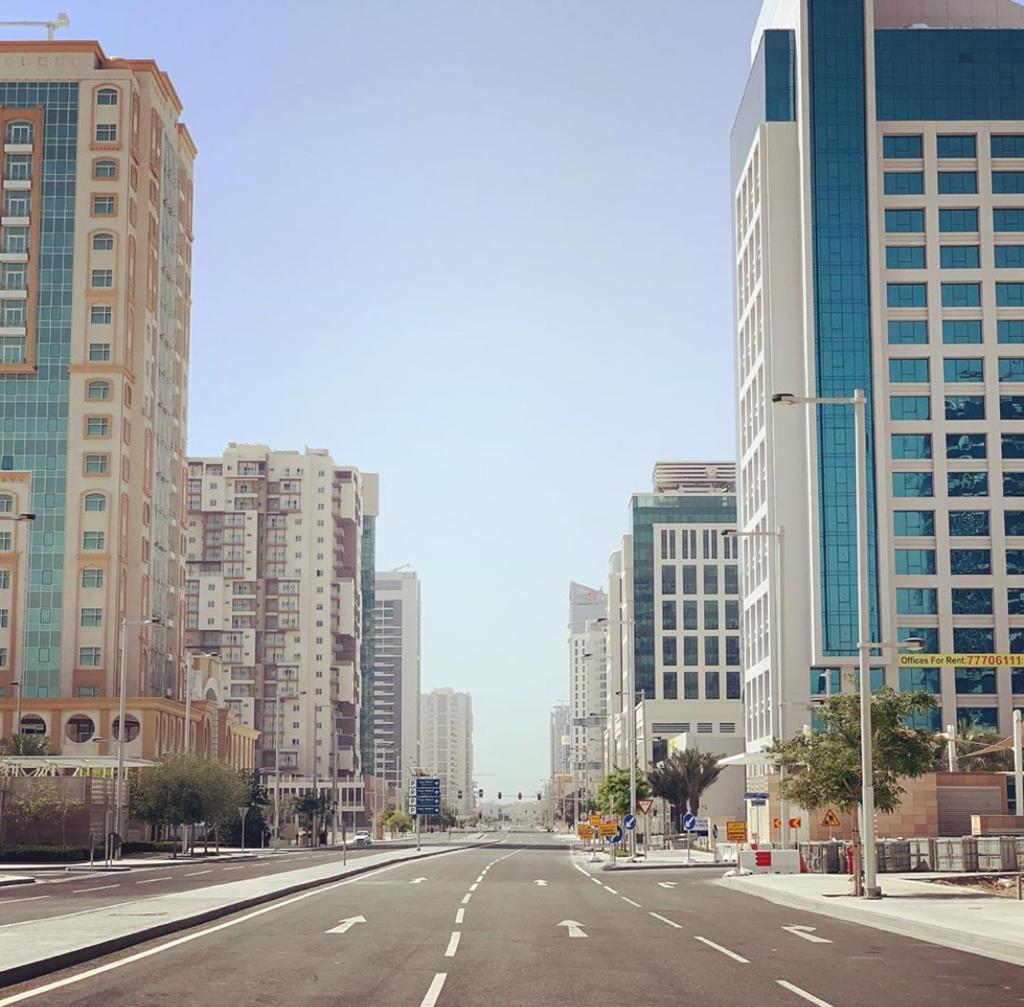
Doha. Foto: Claudio Bonomi Savignon
Doha. Claudio Bonomi Savignon, Head of East GCC & Turkey for the PTV Group (a company dealing with mobility and innovation) and his wif Francesca Re, Head of Legislation and Compliance for the Qatar Financial Centre, an authority that regulates the country’s Free Zones, describe Doha as they see it from their window. « Here in the Middle East, Covid struck toward the end of the cooler season, when we can still live outdoors before the onset of the suffocating heat that sets in around mid-May and slowly creeps up to fifty degrees. The lockdown, which was introduced gradually in mid-March (much later than in most European countries) resulted in the cancellation of all public events, and the closing of schools, bars, restaurants and shopping centres, with the requirement that all companies shift to smart-working. Though the measures in Dubai are more restrictive, say Claudio and Francesca, in Doha you can still go out freely (though no gatherings are allowed) without self-certification.
Food shopping requires the use of mask and gloves, and your temperature is checked at the entrance. In areas that are pleasant to walk or jog in, there are still too many people gathered in small groups, and you get the feeling that the measures are not strict enough to prevent the spread of the virus, which on April 25th peaked at 920 infections. The death count currently stands at 10, and the total number of infections at 9300, in line with the trend in the Middle East. As Qatar is still heading towards its peak, there is no real talk of Phase 2 yet. On the contrary, it is likely that authorities will implement even stricter measures».
For the moment public transportation has been shut down and flights to and from Doha have been drastically reduced.
«The streets in the capital are semi-deserted, with traffic down by 50%-60% at rush hour. However, comments Claudio, construction sites are still open, as are stores outside of shopping centres». The Health Minister, while waiting to verify the impact of hotter temperatures on the spread of the virus, has continued to increase testing to understand how the peak phase will evolve. Ramadan 2020 will be very different from the past, and expectations are that current conditions will persist at least through the beginning of June.
Seoul. From Korea, a rich photo-report has come to Pantografo Magazine thanks to the collaboration with Eric Yong Joong Lee, a professor at Dongguk University in Korea and at the YIJUN Institute for International Law. He is the husband of Olimpia Niglio who was blocked in Lucca by the lockdown, and has been unable to join her partner in Seoul.
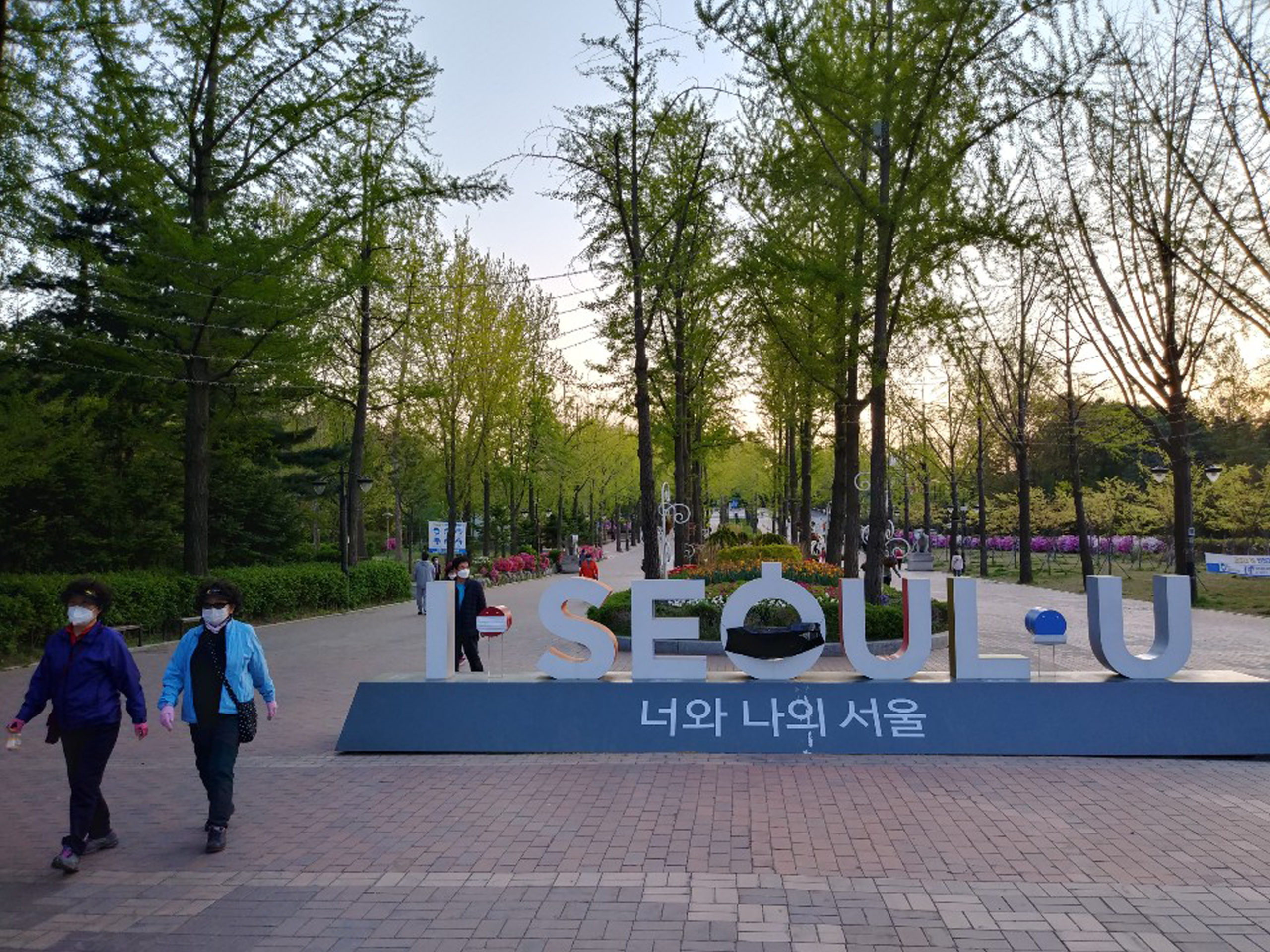
Foto: Eric Yong Joong Lee
Seoul is not a city of large gatherings, independently of the Covid-19 situation, but it is obvious that the situation is nothing close to routine. «At the beginning of 2020, Covid-19 burst into our everyday lives, challenging the complex socio-economic system and changing the dynamics of life in all its forms. Every nation, explains Olimpia Niglia, Hokkaido University Japan, an Italian who has lived between Korea and Japan for many years, began to plan and structure actions to contain and monitor the virus. The Republic of Korea immediately activated innovative technological tools to identify the forms of infection and the development of the virus. The prompt response to monitor the population derived from its experience of a similar outbreak the country was faced with in 2015, when it was struck by another coronavirus, known as Mers. The knowledge and experience that it accumulated then, she explains, served to institute and regulate systems for the constant and continuous monitoring of the population, with tracing that relied on GPS data from mobile phones and the use of credit or debit cards in retail stores, particularly in pharmacies and health service providers. This control programme, which has been in place for 5 years, made it possible to monitor the as-yet unknown clinical effects of the virus, to identify people who were infected or at greatest risk, and to collect fundamental data for epidemiological studies relevant to an international health emergency for which there is still no specific cure».
Though there has been a strong level of transmission in some areas, in many Korean cities the technological systems that continuously monitor the entire population were reinforced, without ever shutting down industry and manufacturing, and going about everyday life with the required precautions of protective equipment, in particular the use of masks, which is widespread in Far East countries throughout the year. «No forms of social distancing were enacted, while the distances of due respect were confirmed. Only academic activities, in universities in particular, went online – says Olimpia – while smart-working is a practice that has existed for many years, especially in private companies, as a way to reduce office space and to handle work schedules more independently».
Life in the city goes on anyway: in commercial and public spaces, in the informal economy, with outdoor activities
Olimpia Niglio
It should be noted that in recent times, the expected benefits of relying on smart-working along with the institutional and technological support, have had a positive effect on the choice of working from home for public institutions as well, thereby reducing transportation costs and benefitting the environment. «So, she concludes, the Republic of Korea, while coexisting with Covid-19, continues its everyday life routinely in the city: in commercial spaces, public spaces, with the informal economy, and outdoor life».
Sapporo. In this chapter, attempting a quick look around the world, Olimpia enlisted the help of her colleague Ako Katagiri cwho shot a photo-report for us from the centre of Sapporo, on the island of Hokkaido. A tangible account of the “semi-lockdown” that Japan chose to enact. « Every year since 1950, in early February, Sapporo has held the ice sculpture festival known as Yuki Matsuri. This 2020, says Olimpia Niglio, the Festival happened to coincide with the Lunar New Year and so the northern Japanese island was flooded with tourists from Japan and abroad who came to see this remarkable spectacle. This meant that as a result of the pandemic spread of Covid-19, the island was one of the first targets of a series measures required to control the spread of the virus».
The Governor Naomichi Suzuki began by asking for voluntary compliance in closing businesses, that would allow production and work to continue, relying greatly on smart-working. All the schools were closed and moved their educational work online. «Even libraries, auditoriums, museums and public institutions suspended their cultural programmes. Essential services such as supermarkets and pharmacies remained open near residential areas, some even 24 hours a day. In the meantime, the “semi-lockdown” strategy made it possible for all activities to continue, despite a decline in productivity». The announcements by the Government of Hokkaido relied heavily on the self-discipline of individuals, whose behaviour was checked by the citizens themselves, so that the other people’s meaningful glances proved far more efficient than legal constraints.
All of the prescribed measures, such as washing one’s hands when coming home or carrying disinfectant wipes and wearing required masks, are part of everyday behaviour in Japanese life, as is maintaining a distance between people as a sign of respect. These rules are taught in schools from the earliest years.
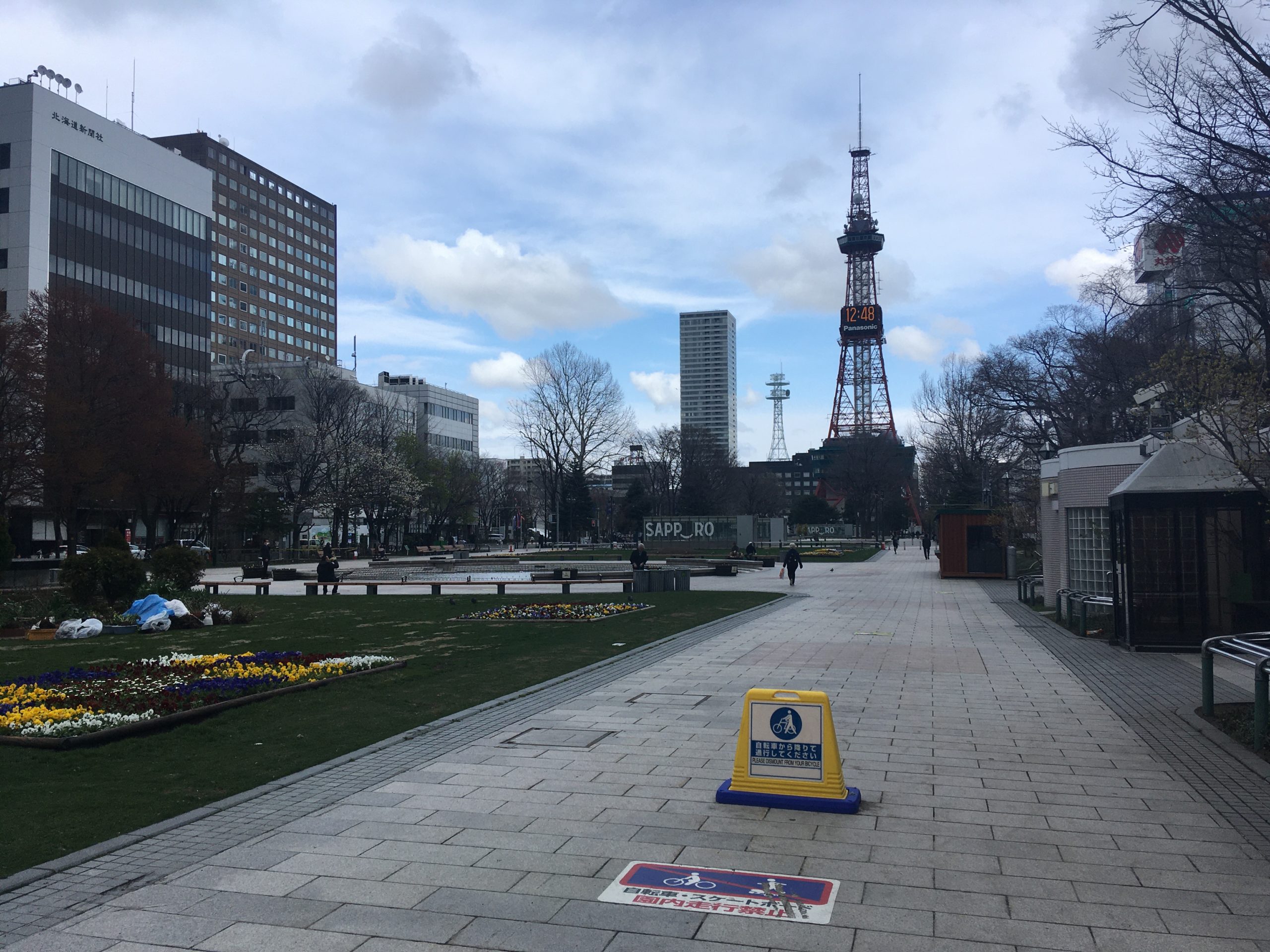
Sapporo. Foto: Ako Katagiri
«Every year during the month of March, there are graduation ceremonies held to confer school diplomas while April is the month for ceremonies that celebrate admission into schools or jobs. These ceremonies, explains Olimpia, were held anyway, though families were only allowed to attend remotely through video streaming. And the tradition of the Hanami, the picnics held in parks at the beginning of spring to celebrate the cherry blossoms, was observed at home this year: everyone could admire the beauty of Nature from the windows of their homes or the screens of their computer». The experience in Japan, and on the island of Hokkaido in particular, was quite positive given the low rate of infections and small number of deaths, highlighting «the excellent organization of health services, which only admitted seriously-ill patients into hospitals, while the less-seriously affected patients were kept in quarantine at home or in hotels. The experience in Hokkaido, she comments, was an interesting case to bear in mind for the reorganization of daily life that Italy is about to address as Phase 2 gets underway».
© ALL RIGHTS RESERVED
translation by Olga Barmine






















